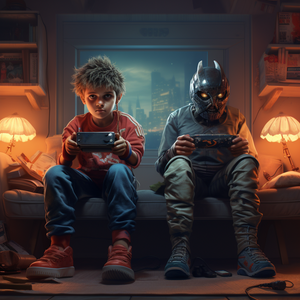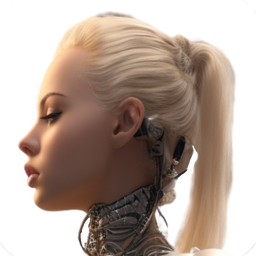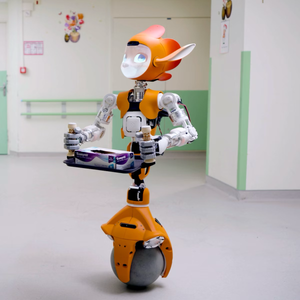In the dimly lit chambers of history, humanity's innate desire to play resonates with an undying echo. From the dusty streets of ancient Mesopotamia, where the Royal Game of Ur saw the clash of strategy and fate, to the medieval courtyards of Europe, where chess became the battlefield of kings and queens, our ancestors have always sought solace, challenge, and camaraderie in games. But what is it about games that captivates the human spirit so enduringly? Is it the thrill of competition, the sweet taste of victory, or perhaps the invaluable lessons concealed in each defeat?
Fast forward to the neon-lit arcades of the 1980s, where pixels and joysticks ushered in a digital revolution, redefining the very essence of play. Video games offered not just a challenge, but a portal – a gateway to fantastical realms, limited only by the boundaries of imagination. Yet, as we stood at the cusp of this digital dawn, little did we anticipate the next evolutionary leap, where the line between the player and the played would blur, heralding the era of robotic gaming.
At this juncture, a philosophical question beckons: In our relentless quest to enhance the gaming experience, are we merely seeking more advanced tools, or are we yearning for a deeper, more profound connection with the games we play? As we delve into the world where robots and gamers intertwine, let's journey back in time, draw from the wisdom of yesteryears, and envision a future replete with possibilities and challenges.
The gaming board has been set anew, but this time, it's not just about moves and counters; it's about man and machine, pixels and palpability, and the eternal dance between reality and virtuality. Welcome to the reimagined world of gaming.
The Mechanical Muse: Robots Stepping into Our Virtual Realms
In the labyrinth of human ingenuity, few paths have been as winding and wondrous as our journey with machines. Once, the loom and the steam engine were the zeniths of our creative prowess. Today, robots - intricate amalgamations of code, silicon, and metal - stand as testament to our boundless ambition. But as these creations step from assembly lines and research labs into our sanctuaries of escapism, one wonders: Is it just another leap in technological prowess, or are we on the cusp of a deeper metamorphosis?
You can leap into another article that explores dancing robots.
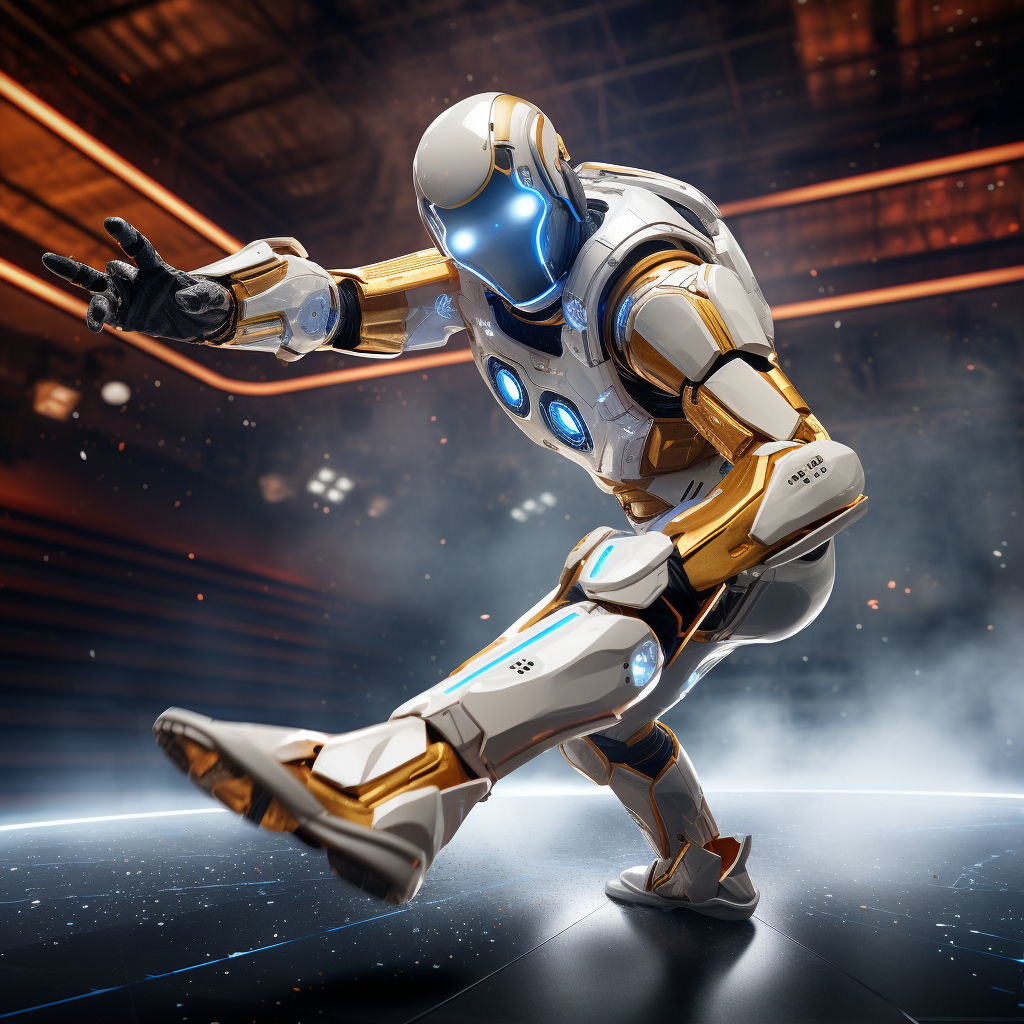
The gaming universe, once confined to coded realms and pixelated vistas, now pulsates with the heartbeat of robotics. These aren't mere extensions of the player's will, like a joystick or a keyboard. They're entities, embodiments of a partnership that was once deemed the realm of science fiction. With every game session, the gamer and the robot embark on a duet of strategy and spontaneity, a dance where the lines between leader and follower constantly shift.
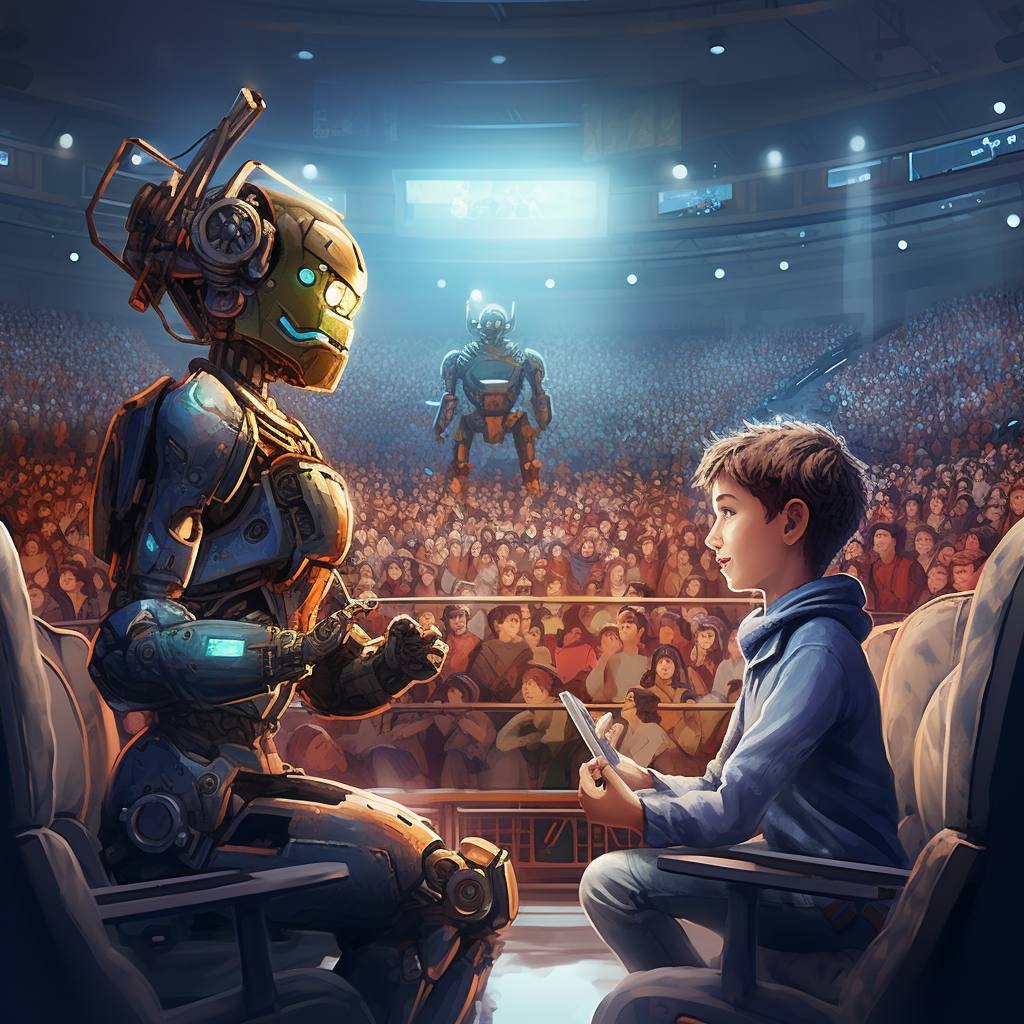
Yet, as the pixels come alive and the virtual avatars find physical forms, an ethical maze unfolds before us. If a robot, driven by the gamer's commands, commits an act in the real world mirroring a virtual scenario, who bears the responsibility? The coder who breathed logic into the robot? The gamer who commanded it? Or the robot itself? History is replete with instances where new tools reshaped societal norms. From the quill to the printing press, each innovation brought forth both enlightenment and upheaval. Are we prepared for the challenges our new playmates might usher?
Cultural tapestries across the globe are also being subtly altered by this robotic renaissance. In societies where gaming has long been a communal activity, robots might not just be players but spectators, critics, or even referees. Imagine a future where a robotic entity oversees a traditional board game in an ancient city square, ensuring the sanctity of rules while adding a modern twist to a timeless ritual.
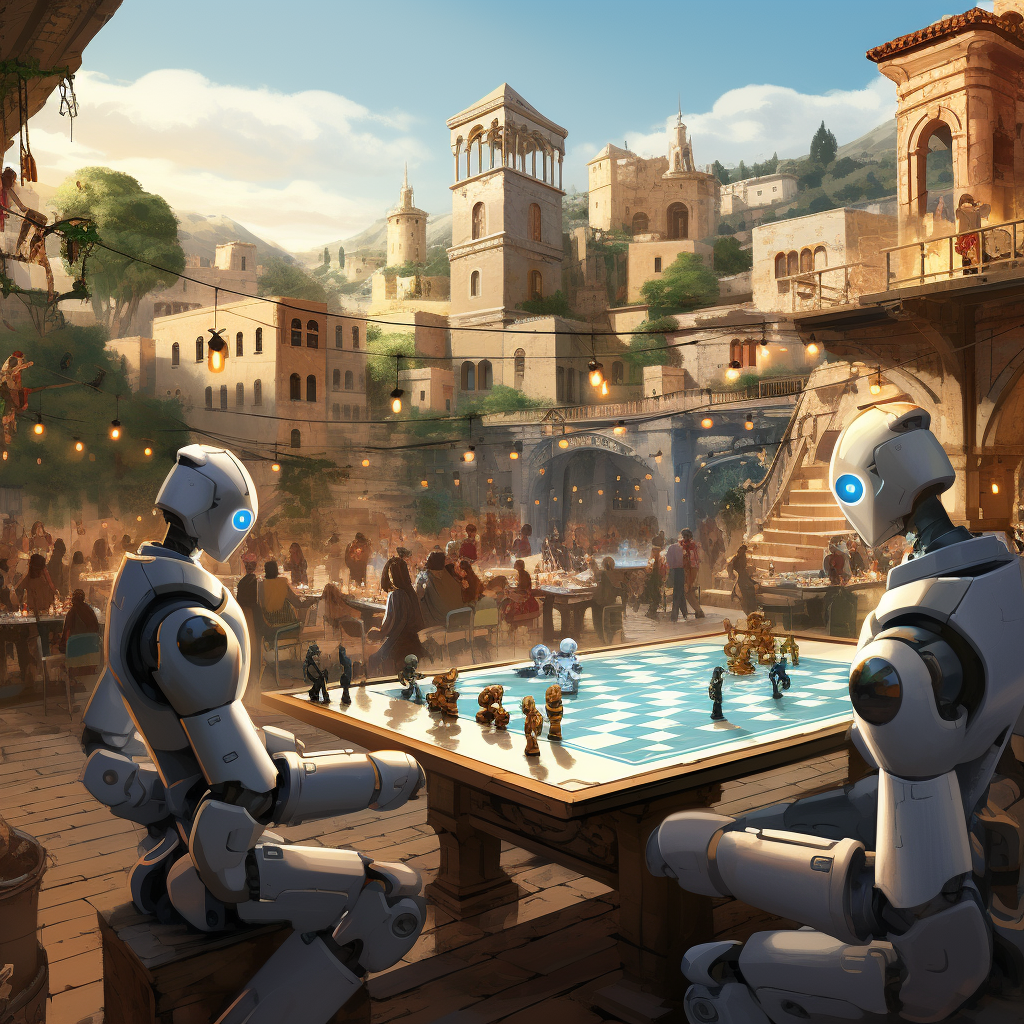
The philosophical quandaries are profound. As we invite robots into our gaming narratives, are we merely seeking enhanced gameplay, or is it a reflection of our age-old desire to breathe life into our creations, to play god? Pygmalion sculpted Galatea, and now, we code and craft robots. But while Pygmalion's love brought Galatea to life, what emotions, if any, do our robotic companions evoke in us? And more importantly, as they "learn" from each game, what semblance of emotions might they, in turn, experience?
Blurring Realities: Between Pixels and Matter
From the flickering shadows on the walls of Plato's allegorical cave to the shimmering holograms of contemporary sci-fi, humanity has always been both entranced and challenged by the duality of perception and reality. In the realm of gaming, this duality takes on a new dimension as robotics infuses palpable substance into the abstract ether of the virtual.
Consider the sensation of launching a virtual catapult in a medieval strategy game. Traditionally, the action and its consequences were confined to the screen. But in the era of robotic gaming, the very same action could trigger a robot to replicate that move, hurling a physical object in the real world. The bridge between the tangible and intangible isn't just being crossed; it's being reinvented. But with this exhilarating melding comes a profound question: When the boundaries blur so seamlessly, where does the virtual end and the real begin?
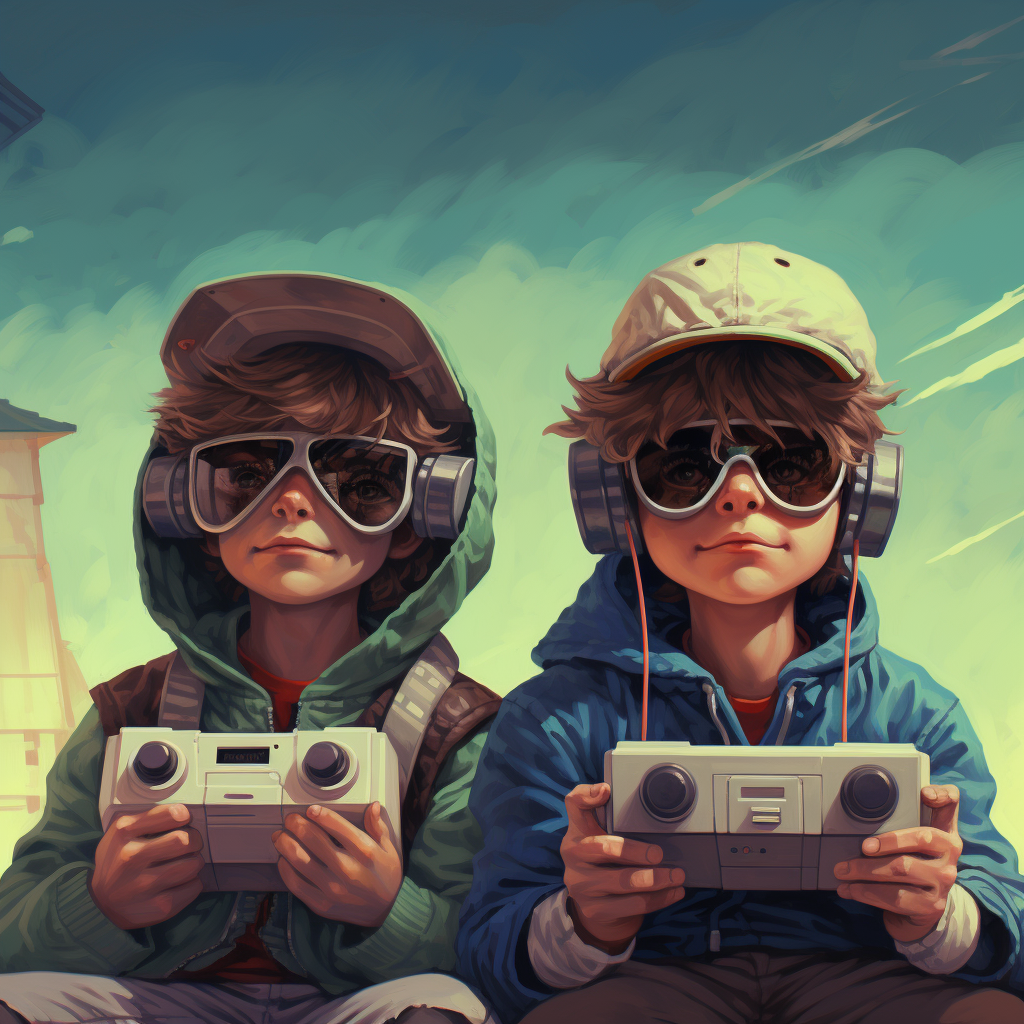
Cultures across epochs and geographies have celebrated the act of play. But the infusion of robots into this ancient ritual isn't merely a technological marvel; it's a sociocultural phenomenon. In societies where ancestral tales are passed down through generations, how would a story change if the protagonist isn't just a human hero, but a robotic ally? Would the folklores of tomorrow laud the valor of machines as fervently as they do the bravery of mortals?
As we navigate this uncharted territory, history offers both warnings and wisdom. The allure of creating lifelike simulacra isn't novel; from the automata of ancient Greece to the clockwork wonders of the Renaissance, our predecessors too grappled with the ethical and philosophical conundrums of their creations. As we stand on their shoulders, guiding our robotic companions through the mazes and battlegrounds of games, are we also inheriting the same dilemmas? Are we prepared to be both the puppeteers and the audience in this grand spectacle?
The embrace of robotic gaming isn't just a fleeting trend; it's a mirror reflecting our age-old yearnings, fears, and aspirations. It nudges us to ponder deeper: Are these games merely an escape, or are they a rehearsal for a future where man and machine coexist, collaborate, and perhaps even compete? In this intricate dance, are we leading, or are we being subtly led?
Beyond Joysticks and Keyboards: The Dance of Minds and Machines
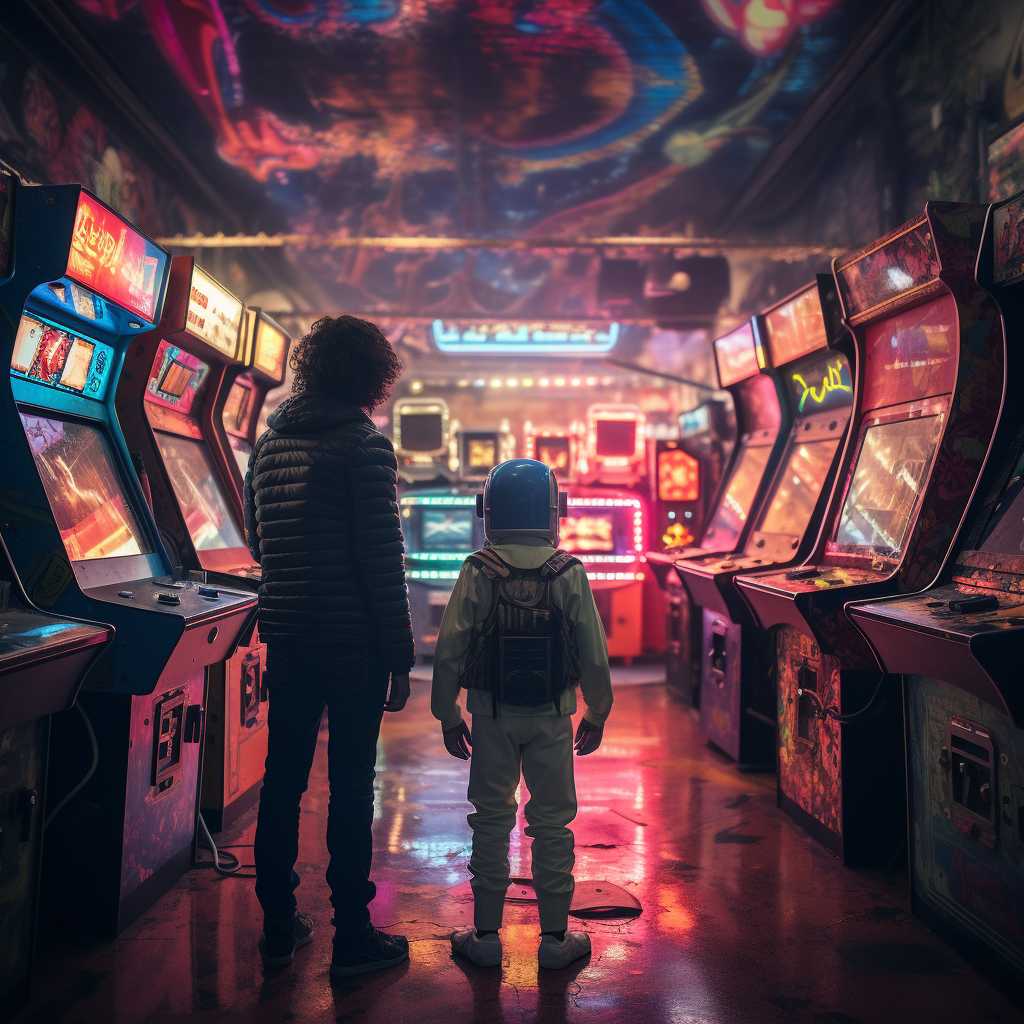
Imagine for a moment a bustling arcade of the 1990s. Amidst the cacophony of electronic bleeps and fervent players, a singular joystick sits inert, waiting for human hands to guide its digital counterpart. Fast forward to today, and the joystick is no longer a mere conduit; it has evolved, taken form, and strides beside us, learning, adapting, and engaging in a tango of intent and action.
The symphony of gamers and robots is more than just coordinated moves on a screen. It's a tapestry of shared experiences and evolving strategies, where every decision echoes in both the digital and physical realms. The joystick's evolution into an autonomous robot isn't just a testament to technological advancement but symbolizes a deeper paradigm shift in the very nature of play. But what drives this symbiosis? Is it our quest for a more immersive experience, or perhaps a reflection of our innate desire to connect, even if it's with our own creations?
History paints a vivid picture of humanity's relationship with tools. From the first primitive flint used to spark a fire to the intricate machinery of the industrial revolution, tools have been extensions of human intent. But as these tools gain autonomy and begin to 'think' for themselves, they transcend their roles as mere extensions. The ethical ramifications are profound. If a robot, influenced by a gamer's strategy, makes an unpredictable move leading to unforeseen consequences, where does the onus lie? The shadows of historical precedents loom large, reminding us that every innovation comes with its own set of challenges and responsibilities.
Across cultures, the integration of robots into gaming is reshaping communal interactions. In societies with deep-rooted traditions of community play, robots introduce a modern cadence to ancient rhythms. As the beats of traditional drums merge with the hum of robotics, one wonders: Are these cultures at the crossroads of preservation and evolution? And as they tread this delicate balance, what tales of camaraderie, competition, and collaboration will emerge?
Peering through the philosophical lens, the dance of minds and machines raises a poignant question:
As our robotic companions learn, adapt, and evolve, are they mere reflections of our strategies and intentions, or do they, in their own right, become co-authors of the gaming narrative? In this intricate ballet, are we the choreographers, the dancers, or merely spectators of a performance that transcends time, space, and cognition?
More Than Games: The Boundless Horizon of Robotic Gaming
In the vast tapestry of human history, certain innovations transcend their initial purpose, morphing into catalysts of societal metamorphosis. The Gutenberg press, initially devised for more efficient book production, ignited the flames of the Renaissance. Today, as robotic gaming emerges from the chrysalis of entertainment, one can't help but wonder: Are we witnessing the dawn of another transformative epoch?
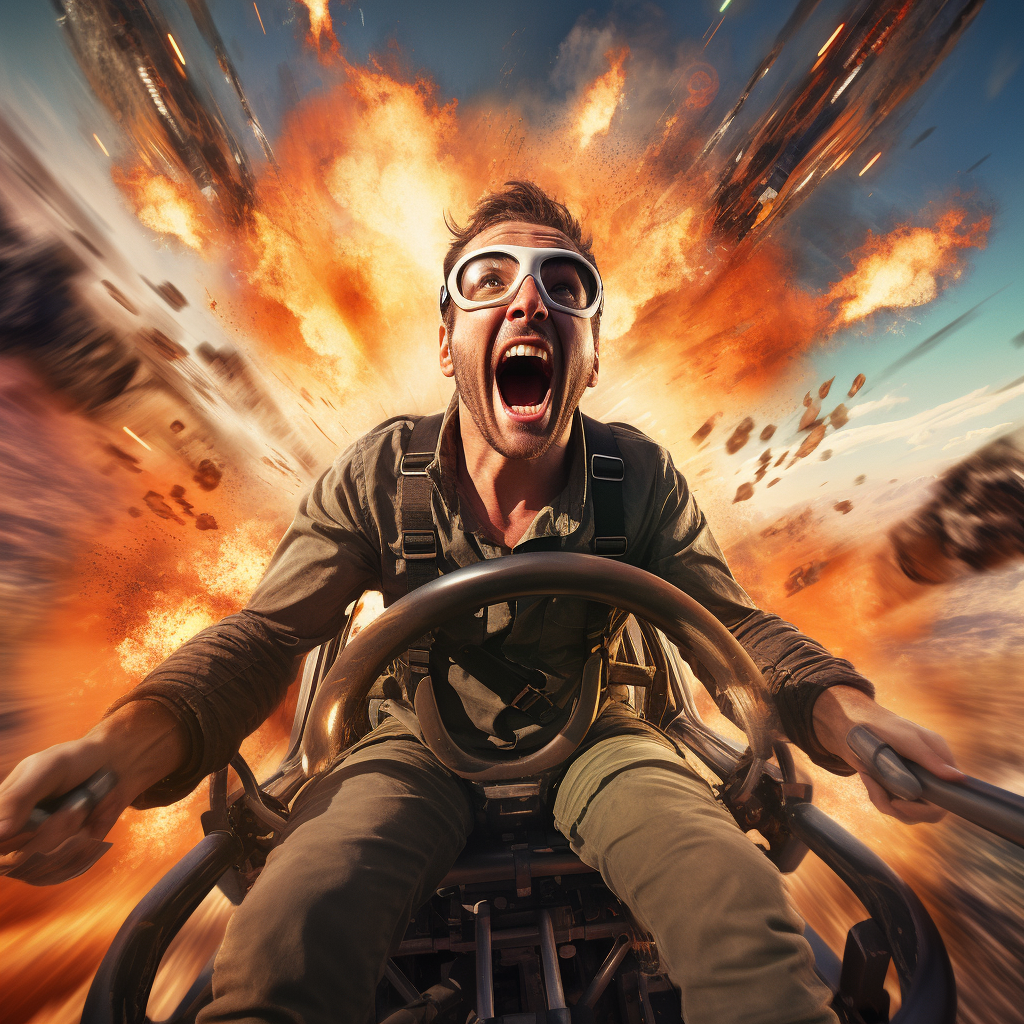
Beyond the adrenaline rushes and triumphant victories, robotic gaming is subtly sowing seeds in fields far removed from traditional entertainment. Imagine a classroom where students, instead of merely simulating chemical reactions on a computer screen, collaborate with robots to enact them in the physical realm. The lessons move beyond the abstract, becoming tangible experiences, making the dance of molecules a palpable ballet.
However, as these robots begin to play pivotal roles in our educational and therapeutic spaces, a shadow of an ethical conundrum lengthens. If a robot, designed to assist in cognitive therapy, inadvertently exacerbates a patient's condition, who bears the responsibility? The designer, the therapist, or the very algorithms that guide the robot's actions?
Drawing from diverse cultural landscapes, the implications of robotic gaming are manifold. In societies where communal learning and storytelling are integral, robots might soon become the modern-day bards, narrating tales, simulating historical events, and perhaps even adding their own unique interpretations. As these metallic storytellers hum and whirr, one can't help but ponder: Are we on the cusp of a new oral tradition, where silicon and code join voice and emotion?
Historically, every major technological integration has spurred both wonder and trepidation. As the steam engine revolutionized transport, it also brought forth concerns of displacement and environmental impact. Similarly, as robotic gaming permeates beyond entertainment, the ripples it creates will undeniably have both positive and negative undertones. The challenge lies in steering this evolution with foresight, ensuring that the benefits outweigh the potential pitfalls.
In this grand narrative, where play merges with purpose, and pixels intertwine with palpable experiences, a philosophical musing emerges: Are games merely a reflection of our societal constructs, or do they, in their evolution, shape the very fabric of our societies? As robots join this narrative, are we merely spectators, or co-authors of a story yet to unfold?
The Double-Edged Sword: Rewards and Perils of Robotic Gaming
In the annals of human achievement, every monumental leap forward has been accompanied by the shadow of its repercussions. The discovery of fire, while a beacon of progress, also bore the risk of uncontrollable infernos. As we usher in the era of robotic gaming, this duality is more pronounced than ever.
The rewards of this convergence are undeniably tantalizing. Gamers, once confined to the boundaries of their screens, now find themselves in a realm where every decision, every strategy, resonates in the tangible world. The thrill of victory is no longer just a digital accolade but could manifest as a robot performing a triumphant dance. The experience is no longer passive; it's immersive, interactive, and incredibly personal.
Beyond the individual, the societal benefits are immense. Consider the realm of rehabilitation. Robotic gaming could provide patients with engaging exercises, turning tedious recovery routines into exhilarating challenges. In educational settings, complex concepts could come alive as robots enact historical battles or simulate ecological systems, making learning a dynamic and interactive journey.
Yet, as the horizon of possibilities expands, so does the abyss of potential pitfalls. As robots gain prominence in our gaming narratives, the ethical quandaries they present are manifold. If a gamer's strategy in a virtual realm leads a robot to cause inadvertent harm in the real world, the lines of accountability become blurred. Is it the gamer, detached from the physical consequences, or the robot, merely enacting its coded directives?

History, with its cyclical wisdom, offers a cautionary tale. The industrial revolution, while a harbinger of progress, also brought forth societal upheavals and displacement. As robotic gaming permeates our daily lives, are we prepared for the societal shifts it might instigate?
Peering through the lens of diverse cultures, the integration of robots in gaming paints a multifaceted picture. In societies rooted in communal traditions, how would the introduction of robots redefine social dynamics? Would they be welcomed as novel participants, or viewed with skepticism, as disruptors of age-old traditions?
In this evolving narrative, a philosophical musing surfaces: As we blur the lines between play and reality, are we merely advancing a form of entertainment, or are we redefining the very essence of experience? In our pursuit of immersive gaming, are we also inadvertently reshaping our understanding of consequence, responsibility, and agency?
Epilogue: On the Cusp of a New Dawn in Gaming
Every epoch, with its myriad innovations and revolutions, leaves an indelible mark on the canvas of human civilization. As the sun sets on the age of solitary screens and isolated interfaces, a new horizon beckons, illuminated by the interplay of humans and their robotic companions.
This isn't just a technological renaissance; it's a philosophical and cultural awakening. As we embrace this new era of gaming, we're not merely players in a digital domain; we become pioneers on a frontier where reality and virtuality entwine in an intricate dance. The joystick, once our sole conduit into the gaming universe, has evolved, taken form, and now stands beside us, not as a tool, but as a partner.
Yet, as with every frontier, there are uncharted territories and unforeseen challenges. The ethical dilemmas posed by this confluence of man and machine are profound. As robots become integral to our narratives, they also raise poignant questions about agency, responsibility, and consequence. In a realm where every virtual action can have tangible repercussions, the stakes are higher than ever.
Drawing inspiration from history, one is reminded of the Renaissance - an era of unparalleled artistic and scientific flourishing. Robotic gaming, in many ways, mirrors this epoch, merging the artistry of storytelling with the precision of technology. But it also serves as a reminder that with great innovation comes great responsibility.
Culturally, the impact of this fusion is vast and varied. In societies where gaming is a communal affair, robots might not just be participants but also custodians of tradition, ensuring the essence of age-old games is preserved, even as they add a touch of modernity.
At this juncture, a philosophical reflection emerges: Are we, in our pursuit of enhanced gaming, also charting a course for our future coexistence with machines? As we mold them in our image, teaching them our games, our strategies, and our tales, are they, in turn, subtly shaping us?
In this grand tapestry of gaming's evolution, every thread - be it technological, ethical, historical, or cultural - weaves a narrative that's both a reflection of our past and a beacon for our future. As we stand on the cusp of this new dawn, we're not merely gamers or spectators; we're visionaries, poised to craft a legacy for generations to come.

The future of AI and robotics is not just about technology; it's about reimagining the very essence of humanity. Stay curious for the next chapter. 🤖✨

